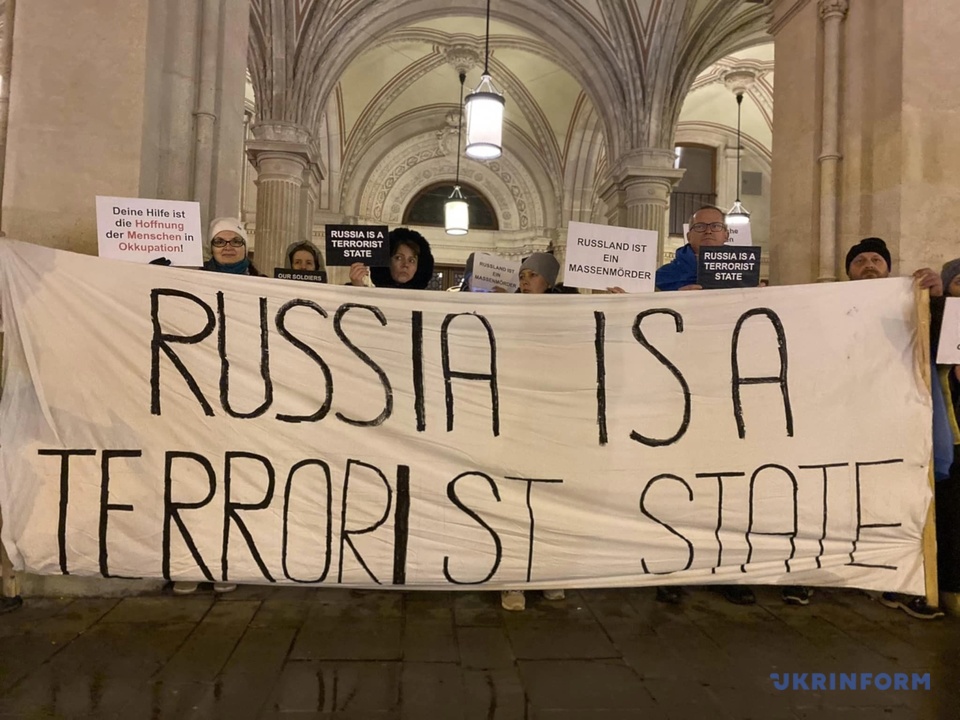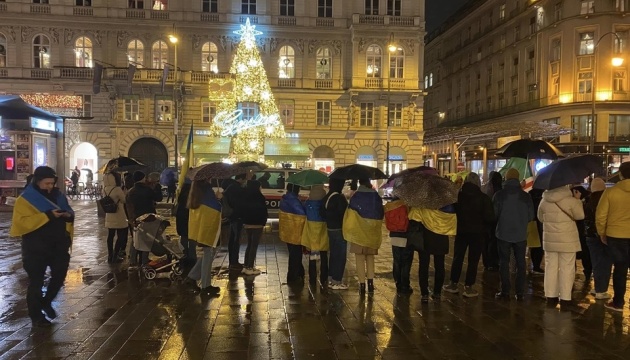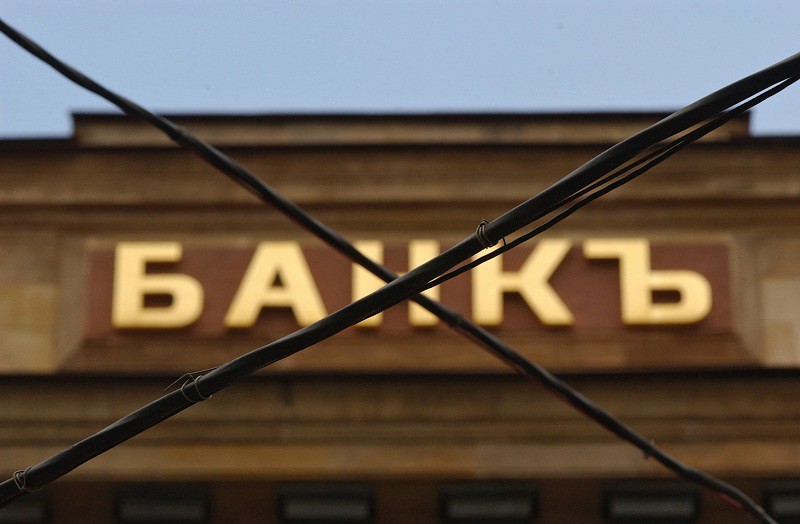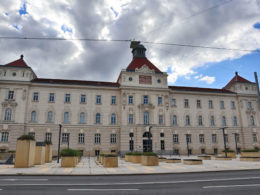
"Today we express our protest, anger, and pain related to the ruthless missile attacks by Russia on our independent Ukraine which lasted for days. Hospitals, maternity wards, residential quarters, schools, kindergartens — none of them matter to Russians. The more horrifying Russian crimes are, the more they rejoice. This is the essence of today's Russia," noted the co-organizer of the protest, head of the non-governmental organization Unlimited Democracy, Anna Pattermann.

"Russian attacks on Ukraine don’t receive enough media coverage in Austria. That's why we took to the streets to remind the international community that the brutal Russian war continues, to urge Austrians to strengthen support for Ukraine, and to boycott any business with Russia," said the activist.Another activist, the head of the non-government organization “Vienna Goes Europe,” Kati Schneeberger, also called on the West to continue providing aid to Ukraine to help the country return all of its territories seized by Russia.

"Over the past few days, we have witnessed the biggest, most massive attacks on Ukraine since the beginning of the full-scale invasion on 24 February, 2022. This war must finally be stopped. It requires absolute support for Ukraine and peace. Peace does not simply mean a ceasefire, it does not mean occupation. Peace means no Russian soldiers on Ukrainian territory," she claimed.During the rally held at the center of Vienna, the protesters urged the Austrian government to expel representatives of the Russian embassy and summon the Russian ambassador in response to the strikes on Ukrainian cities. According to the participants of the event, Russian diplomats "are collaborators of the bloody Putin regime's intelligence services." In addition, activists called on the Austrian government to send helmets, bulletproof vests, and demining equipment to Ukraine, freeze Russian assets, and use the frozen funds for the reconstruction of Ukraine. On 3 January, the UK Defense Ministry reported that Russian strikes on Ukraine had “likely primarily targeted Ukraine’s defense industry,” in contrast to Russia’s “major attacks last winter which prioritized striking Ukraine’s energy infrastructure.”
British Intel: Russia likely changes approach in its long-range strikes on UkraineRussian forces committed a significant proportion of the stock of air-launched cruise missiles and ballistic missiles they had built up over recent months, the British intel added. Russia spent about $620 million on a massive missile attack on Ukraine on 2 January, Forbes estimated. The strike happened days after Russia’s latest large missile attack of 29 December, which took the lives of 39 civilians throughout the country. These strikes happened after a summer-autumnal lull when Russia was considered to be stockpiling missiles. In its recent massive strikes, Russia mostly hit residential buildings. It also damaged the power system, warehouses, heating networks, and cars. Read more:
- Russian drones destroy Ukraine freedom fighter’s museum, hit Bandera landmark
- Russia attacks Ukraine with 90 explosive drones killing a teenager on New Year’s night, Ukraine downs 87 UAVs
- Another delusional fantasy: Ukraine denies Russia’s claims that it targeted military in Kharkiv hotel




